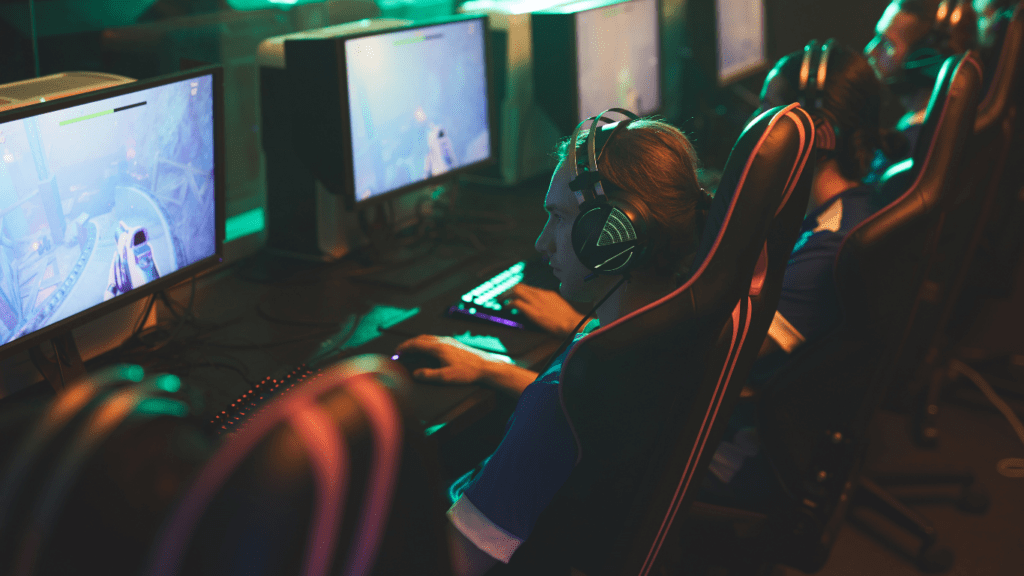As a game designer, I’ve witnessed firsthand the transformative power of diversity and inclusion in shaping the gaming industry. From characters to storylines, the infusion of diverse perspectives not only enriches gameplay but also fosters a more inclusive gaming community. In this article, I’ll delve into the pivotal role that diversity and inclusion play in driving innovation and creativity in game design.
Embracing diversity goes beyond mere representation; it’s about creating authentic and relatable experiences for players from all walks of life. By incorporating diverse voices and narratives, game developers can challenge stereotypes, break barriers, and pave the way for a more inclusive gaming landscape. Join me as we explore how diversity and inclusion are not just buzzwords, but essential elements that can revolutionize the world of game design.
The Importance of Diversity in Game Design
Diversity in game design is crucial for creating inclusive and engaging gameplay experiences that resonate with a wide range of players. By incorporating diverse perspectives, game developers can enrich the storytelling, characters, and overall gaming environment, leading to more immersive experiences.
Benefits to Player Engagement
Diversity in game design enhances player engagement by offering a variety of narratives, characters, and cultural references that cater to different audiences. When players see themselves represented in games, they feel a stronger connection to the story and characters, increasing their emotional investment in the game. Additionally, diverse games provide players with unique challenges, perspectives, and gameplay experiences that keep them interested and involved.
Enhancing Creativity in Game Development
Embracing diversity in game design fosters creativity and innovation in the development process. By welcoming a range of voices and experiences, game developers can introduce fresh ideas, new gameplay mechanics, and unique storytelling approaches that set their games apart. Encouraging diversity in game development teams leads to more creative problem-solving, collaborative synergy, and innovative solutions that push the boundaries of traditional game design.
The Role of Inclusion in Gaming Communities

- Building Inclusive Gaming Spaces
Inclusive gaming spaces are essential for fostering a sense of belonging and community among players. I believe that creating environments where individuals from diverse backgrounds feel respected and valued enhances the overall gaming experience. By promoting inclusivity, game developers can cultivate a safe and welcoming atmosphere for all players to participate and engage without fear of discrimination or exclusion. Inclusive gaming spaces promote diversity and enable players to connect through a shared passion for gaming, regardless of their differences. - Challenges and Solutions in Fostering Inclusion
While the significance of inclusion in gaming communities cannot be overstated, there are still challenges that must be addressed to ensure equal access and representation for all players. I acknowledge that overcoming biases, stereotypes, and discrimination within the gaming industry is a complex process that requires dedication and proactive measures. To foster inclusion effectively, developers must prioritize diversity in their teams, content, and marketing strategies. By actively seeking diverse perspectives and feedback, game developers can create more inclusive games that resonate with a broader audience. Additionally, implementing robust community guidelines and moderation practices can help maintain a respectful and inclusive gaming environment for everyone.
Impact on Gaming Industry
Diversity and inclusion play a crucial role in shaping the gaming industry landscape, impacting various aspects from creativity to market reach. Let’s delve into the economic benefits of diverse game design and explore some case studies of successful diverse games.
Economic Benefits of Diverse Game Design
Incorporating diversity in game design not only fosters creativity but also brings substantial economic advantages to developers and publishers. Diverse games appeal to a broader audience, leading to increased sales and market share. By reflecting different cultures, perspectives, and experiences, these games resonate with a more diverse player base, establishing a loyal following and attracting new customers. Embracing diversity in game development can result in higher profitability and long-term sustainability for companies in the gaming industry.
Case Studies of Successful Diverse Games
Several successful games have demonstrated the power of diversity and inclusion in captivating players and achieving commercial success. Games like “Overwatch” and “The Last of Us Part II” have received acclaim for their diverse character representation and inclusive storytelling. These games not only offer engaging gameplay mechanics but also feature diverse characters with depth and authenticity, resonating with players on a personal level. The positive reception and strong sales of these titles showcase the demand for diverse game experiences in the market, encouraging other developers to prioritize inclusivity in their projects.
Future Trends in Diversity and Inclusion in Gaming
As the gaming industry continues to evolve, upcoming initiatives and policies are set to further advance diversity and inclusion in game design.
Upcoming Initiatives and Policies
I anticipate that future initiatives and policies will focus on increasing representation and inclusivity in gaming. Measures such as diversity quotas, inclusive design guidelines, and community-driven initiatives will play a crucial role in shaping the future landscape of the gaming industry. These efforts aim to create more opportunities for underrepresented groups, foster a culture of acceptance and respect, and ensure that diverse voices are heard and valued in game development. By embracing these initiatives, the gaming industry can truly harness the power of diversity and inclusion to drive innovation, creativity, and excellence in game design.



